CMN 453
Communication and Social Change

1. Course Description
This course provides students with an opportunity to pursue advanced studies of the construction of social differences such as race, gender, sexuality, class and disability in professional communication through a range of theoretical lenses and in a variety of institutional contexts (e.g., media, education, law, health). Students also engage with communication in activist, advocacy and social justice contexts, including the theories and philosophies that inform communication practices in these contexts.
Last Revised
Prerequisites
CMN 211 and CMN 323. Note: Available only to Professional Communication students
Delivery
Lab: 3 hours
2. Course Objectives & Learning Outcomes
- Create and analyze communication products in a social change framework;
- Demonstrate fundamentals of advocacy and activist communication practices;
- Identify power structures and critique forms of discrimination, exclusion and oppression in the communication practices of organizations;
- Identify and integrate divergent perspectives to build alliances and coalitions;
- Plan and implement communication strategies for social change
3. Topics Covered
- Theories of power, positionality and privilege
- Theories of empowerment, social change and social justice
- Communication practices for inclusion, access and equity
- Communication strategies and creative media in activist and advocacy contexts
4. Teaching Method
Workshops
CMN 453 is an advanced upper-year seminar in which students regularly participate in and lead class discussions. Classes will consist of interactive lectures and discussions. Students will work both individually and in groups.
5. Course Materials
Required readings can be downloaded for free online through the course’s D2L site.
6. Policy
6.1 University Policies
Students are required to adhere to all applicable university policies found in their Online course shell in D2L and the Course Outline Policies.
6.2 Print and Digital Copying Guidelines:
Toronto Metropolitan University complies with Canada’s Copyright Act which protects both creators/owners and users of copyrighted materials. Students should familiarize themselves with TMU Copyright policies and procedures, and contact the Copyright and Scholarly Engagement Librarian at copyrt@torontomu.ca for questions, concerns and clarification of the copyright rules.
6.3 Turnitin.com
Turnitin.com is a plagiarism prevention and detection service to which Toronto Metropolitan University subscribes. It is a tool that helps instructors determine the similarity between student work and the work of other students who have submitted papers to the site (at any university), Internet sources, and a wide range of books, journals, and other publications. While it does not contain all possible sources, it gives instructors some assurance that students’ work is their own. No decisions are made by the service; it generates an “originality report,” which instructors must evaluate to judge whether something is plagiarized.
Students agree by taking this course that their written work will be subject to submission for textual similarity review to Turnitin.com. All submitted papers will be included as source documents in the Turnitin.com reference database solely for the purpose of comparing the similarity of such papers. Use of the Turnitin.com service is subject to the terms-of-use agreement posted on the Turnitin.com website. Students who do not want their work submitted to this plagiarism detection service must, by the end of the second week of class, consult with their instructor to make alternative arrangements. Even when an instructor has not indicated that a plagiarism detection service will be used, or when a student has opted out of the plagiarism detection service, if the instructor has reason to suspect that an individual piece of work has been plagiarized, the instructor is permitted to submit that work in a non-identifying way to any plagiarism detection service.
6.4 Email Communication
Toronto Metropolitan University requires that any official or formal email communication from students be sent from their official Toronto Metropolitan University electronic accounts.
6.5 Video and Audio Recording
No video or audio recording is permitted in class without the express permission of the instructor.
7. Learning Management System
Toronto Metropolitan University supports Brightspace by D2L as its official Learning Management System. University Policies governing Brightspace have been documented at the Courses @ Toronto Metropolitan University Privacy and Security website.

